#banlieues
Explore tagged Tumblr posts
Text

(Jan van den Straet dit Giovanni Stradano, Virgile parle aux démons, 1587) .
Aux portes des villes en flammes,
les cris embrasent la nuit
et les rois n'ont plus de discours.
Les sillons de la haine de toute part se multiplient,
traversent et croisent les rayons des destins
jusque dans la paix des jardins
où l'été dernier chantait la légèreté
attentif aux appels du large ciel.
.
Derrière nos murailles est-ce le rouge de Dité que je vois s'élever ?
.
"Il foco etterno ch'entro l'affoca le dimostra rosse, come tu vedi in questo basso inferno".
Dante Alighieri, La Divine Comédie, L'Enfer.
.
(Dans la portée des ombres, extrait)
© Pierre Cressant
(lundi 7 novembre 2005)

#poésie#poème#poètes sur tumblr#french poetry#poésie contemporaine#poètes français#dans la portée des ombres#révolte#banlieues#émeutes#2005#Dante alighieri#Dante#Giovanni Stradano#petite histoire poétique du monde#petite histoire poétique de la France#L'Enfer#La Divine Comédie
7 notes
·
View notes
Text
Anonymous asked: I couldn’t help be concerned with what is happening in Paris right now with the rioting and destruction of such a beautiful city. Are you fine? Are you safe in Paris? What do you make of this madness?
Yes, I’m perfectly fine and safe. I feel almost embarrassed to even answer. Everything is fine but it has been an eventful few days.
I was caught in Nanterre on the second night of violence and managed to walk home safely in the early hours. Nanterre is a mix of social housing, students but also part of La Défense which is Paris’ central business district where a lot of the major corporates are based on the west side of Paris. It’s an ugly concrete and glass sprawling city within a city of sky scrapers, shaping malls and social housing.
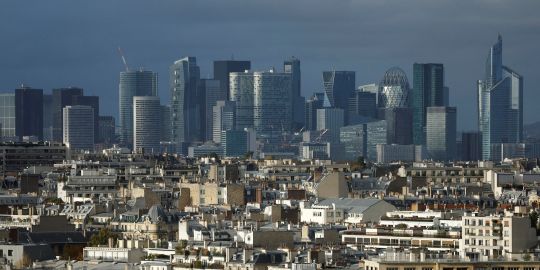
It’s very much like the City of London with the three poorest boroughs on its doorstep - for those familiar with London will know what I mean. Over 200,000 people commute daily into La Défense and its daily grind on the crowded RER and bus lines. I go in often as I have a ton of meetings there with corporate clients.
I don’t know anyone who really loves La Défense but at least its sky scrapers don’t pollute the Paris sky line as it shunted to the far west of Paris. There is no question there is a disconnect between the wealth of La Défense and the surrounding social housing and urban sprawl in the surrounding communes of Courbevoie, La Garenne-Colombes, Puteaux, and Nanterre.
But whilst these communes are rapidly being gentrified Nanterre has proven resistant. Nanterre has a particular place in Parisian history as it was where the Paris May riots of 1968 began when the students at the university there (and that spread to other Paris university campuses like the Sorbonne) lighted the revolt that has had reverberations down to the present day.
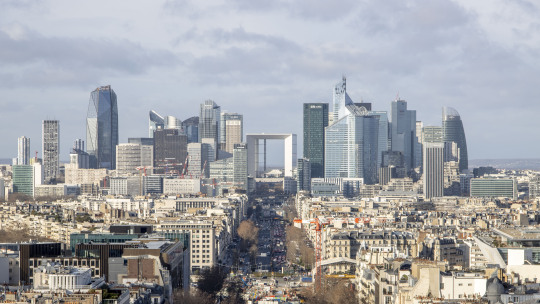
In any case, I was out to dinner with some work-healed friends and colleagues and also a couple of outside friends. One of whom was the son of my downstairs neighbour (and good friend), a retired army general. The son is also an army officer - a special forces operator back from the Sahel and working at the Hexagone Balard, the home of the French armed forces and French ministry of armed forces (like the Pentagon). The young captain was doing a temporary assignment and we get on great as it wasn’t so long ago I was in uniform out in Afghanistan.
Anyway, I had invited him to join a few of my corporate work friends of mine - who worked in la Défense with other firms - for a friendly after work dinner. We went to a Moroccan restaurant on the edge of Nanterre as it was highly recommended by one of my friends. The meal was great and everyone got on just fine. We had a such a good time that we lost track of time and it was late.
But our night was about to take a more eventful turn.
As several people slouched off one work colleague - she was Moroccan and actually lived in Nanterre - couldn’t get hold of an Uber. She lived with her mother and her younger teenage brother. In fact, this colleague of mine was a junior intern and I had been pushing her to join us after her stint was up as I really thought she had the smarts and the energy to succeed. But she was often put off by the snobbery of some in the office (she didn’t go to the right schools) and felt socially a fish out of water. But we got on really well and I enjoyed mentoring her because she worked hard and I don’t tolerate airs and graces in my team (very un-french).
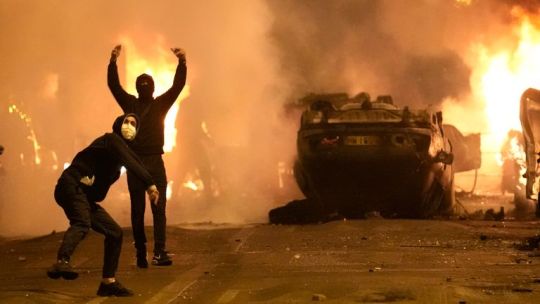
So anyway, she was stuck and so was another friend, a banker, who lived in the same neighbourhood as I did. We couldn’t leave my Moroccan friend alone and so both the Captain SF and I decided that we would walk her home to her apartment building. My banker friend was not so keen; she clearly felt like a fish out of water as we walked through Nanterre with youths on the street and a few explosions could be heard in the distance.
Anyway, we made it to my Moroccan intern’s apartment without incident despite alarming signs of more youths spilling on to the streets. The mother was incredibly generous and insisted we stay for tea and sweets in their small cramped apartment. This was typical Arabic hospitality which I’ve always found whenever I’ve traveled to North Africa. Capt SF endeared himself to the mother and her younger brother by speaking in fluent Arabic. My banker friend did show faultless manners but she clearly agitated and wanted to go home. Capt SF and I looked outside the high rise apartment window and could survey the scene below. There were fireworks now lighting up the night sky and more noise of rampant youths, but no sign of the police. Back at the table, my banker friend and my Moroccan friend were engaged in a polite but tense discussion about the death of Nahel and police brutality. It was like water and oil - each came from different sides. Both made valid points.
As interesting as these discussions were I was more concerned about what we were going to do. Capt SF - a calming figure and one you would trust with your life - was stoic. We looked at the situation clinically and thought it was wiser to sit this one out until things calmed down. It’s better to let the night run its course - the youths would do their looting and burning and the police and the pompiers would do their stuff. But it would burn out, eventually. We both agreed that the early hours were the best time to move out on foot - so best we stayed put.
The mother and my Moroccan intern insisted that we stay and make ourselves at home. So instead of watching the TV coverage, we tried to get some valuable sleep. Watching the tv screen does nothing other than heighten the fear of things outside of your control. Besides watching the tv screen was like watching headless chickens running around with all these talking head commentators in the news studios were not saying anything original. Capt SF had been on his mobile and he was phoning his military colleagues at the Hexagone to get a security appraisal from their police and security sources. So we weren’t entirely blasé about this. We knew what was happening, and in the end you have to deal what is in front of you, which in our case was a few streets away.
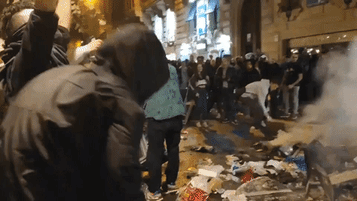
The teen brother wanted to go out and see what was happening and his mother pleaded with him to stay inside safe and not go out and join his neighbour head friends outside. It took the intervention of Capt SF to convince him to respect his mother’s wishes and told him he was the man of the house and he needed to behave in that way to his mother and older sister. But the youth’s blood was up at the injustice of Nahel’s killing and he was fed up with the police picking on him. he wanted to join his mates outside on the streets.
No one could stop him from going. Not even his distraught mother. Capt SF went out with him and an hour later they were back. Something happened or something was said but Capt SF had convinced him to come back. I couldn’t say what though but the teen was shaken and he was apologetic to his mother and sister for leaving them.
Meanwhile my banker friend had grown more agitated and couldn’t understand why Capt SF and I just wanted to sleep through this and be so chill about it. She was clearly scared and nervous - this was not her normal surroundings. I didn’t blame her because it’s natural to fear the unknown. I calmed her down and tried to take her mind off things. In that moment I hadn’t realised just how all this so so surreal for her. She came from the very closed and privileged world of the 6th and the 16th arrondissement of Paris. To her credit she was putting on a brave face.
Around 3am we finally decided there was enough lull in the commotion outside for us to risk going out. My intern gave us base ball caps to wear and we took off any bling like hand bags or jewellery for her to look after. My banker friend and I wore borrowed hoodies and we changed our high heels to our sneakers (always in my tote bag).
Once outside we lowered our base ball caps and walked calmly through the streets. It wasn’t a pretty sight with the over turned cars and the smell of rubber and metal in the air. There was broken glass every where and shop windows were smashed to pieces. There were a few rioters clad in black hoodies and baseball caps with masks on. They largely paid no attention to us as they were bent on looting and burning stuff. We only saw the riot police in the distance amongst the plumes of smoke.

There were one or two tense situations that fell in our path. One was seeing a resident (an Arab-French) fighting off black and Arab youths who were trying to burn his car. They pushed and jostled him and he was shouting at them in French that they were scum for trashing people’s property. He was hopelessly outnumbered. Capt. SF told me to stay and look after my friend while he went to deal with it. He just calmly walked over and picked up a metal pipe and swung it the youth who seemed the ringleader. Just to make his point he did clinical forearm smash on the youth’s nose and he buckled over in intense pain. Capt. SF threatened them with the swinging pipe and they got the message. They left the badly bruised Arab resident alone as they hurriedly ran away into the next street.Once the Arab resient seemed okay, we called over other nearby residents to take him home to his elderly wife.
Eventually we made it into our arrondissement where everything was a picture of calm - it felt like a different world. We walked my banker friend home to her apartment, all safe and sound. Capt SF made it back to our apartment building where we had a well deserved glass of single malt scotch whisky.
Now I am back at work. What a drama.
Honestly, some of the reaction outside of France is way out of proportion to what is happening - which is incredibly serious - to what is actually happening. Yes, there is civil unrest and riots in certain parts of Paris but it’s not a full scale insurrection or the first shots of a civil war. People need to calm down.
What is happening now is very much what happens at periodic intervals whenever a tragic shooting occurs in recent years, most recently with the death of Adama Traoré in 2016. Traoré was a black French young man who died in custody after being restrained and apprehended by police. His death triggered riots and protests against police brutality in France. The riots unleashed back then lasted for around three weeks before the state took back control.
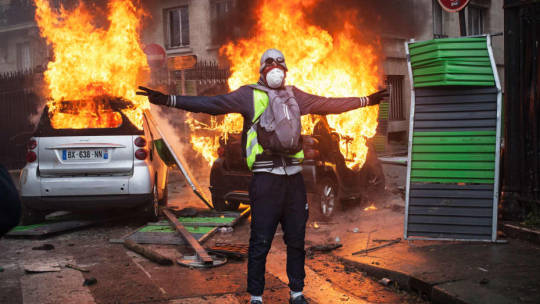
The death of the teenager, Nahel, is a familiar one. The 17 year old Algerian-French was shot dead during a routine traffic stop in a Paris suburb on Tuesday. According to prosecutors, Nahel was pulled over for traffic violations. Police initially claimed one officer used his firearm because Nahel was driving at him, but a video of the events on social media showed this was not the case. In the now infamous video of Nahel’s tragic death, the two policemen stand on the side of a stationary yellow Mercedes, with one pointing his firearm at the driver. “You are going to get a bullet in the head,” a voice is heard saying. The officer shoots the boy point-blank as the car quickly drives away, reaching a crossroad a few metres ahead before crashing. Nahel died from his wounds shortly after.
Within this tragic tale likes two narratives driven by two caricatured and irreconcilable camps. On one side a perfect police force that never makes a mistake, on the other indignant victims who are only angels. When all is said and done, the police officer did not have to shoot, and the young driver in a Mercedes, if he had obeyed the police, would be alive. In the French political debate, these two truths are never confronted; they clash sterilely. It's a poor debate, a sad debate, which only fuels violence, because each side only wants to see the worst in the other.

There is plenty of blame to go around. No doubt the there are many reasons to explain this madness, but I will just limit myself to a couple of observations.
The judicial outcome of this case will determine the general mood in the days to come. But Macron has blundered. Quite apart the bad optics of going to an Elton John concert on the second night of rioting and appearing to live on a different planet - perhaps he really is Jupiter - as he said of himself once - and he lives on Mount Olympus after all. Macron has to take responsibility for this hot mess. Oblivious to the principle of separation of powers, without waiting for the results of the ongoing judicial interrogation of the two police officers involved, he hastened to publicly condemn the shooting and demand “fast justice”.
In other words, Macron responded to a potentially incendiary situation by feeding the flames, while appearing grossly weak to anti-racist activists and extremist leftist politicians; groups that for several years have sought to force the pernicious American Black Lives Matter (BLM) and critical race theory narrative onto France which has a very different history of its race issues to the ones in the US.
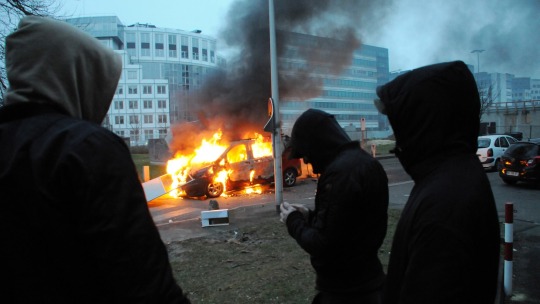
The Far left have taken to the streets egged on by far left activists such as the old French war horse of the left, Jean-luc Mélenchon, doing his best Stalinist tribute act. There is no question they complicit in many of the night time rioting and looting.
The French police are far from blameless. Badly paid, working long hours of which too many are devoted to paperwork, they suffer one of the highest suicide rates among all French professions. Unlike the gendarmerie, they’re not trained to military standards; instances of violent handling of protesters, for example, are common. Half of them vote Le Pen and yet they are also blue collar and are multi-ethnic in make up (so it’s not always about race). Yet one also has to take into account that there were 26,000 recorded “refus d’obtempérer” (refusal to obey police instructions or commands) in 2021.
Almost every time, flics are scared of being attacked, often with good reason: banlieues around France’s largest cities are the scene of recurrent ranged battles waged with heavy weapons. Police authority is challenged at almost every turn by a population that doesn’t acknowledge the very notion of authority. While nobody believes they are perfect, the French Forces de l’ordre are broadly popular (if less among the under-30s), which explains the success of former home secretaries like Nicolas Sarkozy. A majority of the French would oppose any kind of “defund the police” movement. How, then, can Macron hope to unite the country?
This is the third lethal shooting of its kind to take place in France this year. In 2022, a record 13 people were killed by police for failing to stop for the police. That’s six times more than in 2021. While police say fatal shootings during road checks can be attributed to an increase in cases of non-compliance and dangerous behaviour at the wheel, many experts say the correlation doesn’t explain the spike in deadly shootings.

All roads seem to lead back to a key security bill that was passed by the French government in 2017.
The law was designed to combat terrorism, with it making permanent some of the unique measures introduced in the wake of the 2015 Paris attacks and the state of emergency that followed. Many critics - human rights groups and leftists at the time - fervently criticised the law, saying it dangerously broadened the legal framework for when a police officer could use their firearm.
The numbers speak for themselves. French researchers carried out a study to understand the spike in fatal shootings by police and found that five times as many people in vehicles were shot by police after the law was introduced. While cases of non-compliance increased by about 35% on average since 2017, the researches argued this didn’t justify the 350% increase in fatal shootings on vehicles for the same period. They felt that the 2017 put lives at risk at the hands of the police.
Before the law was enacted, police officers in France (like all citizens) were subject to the principles of self-defence and could only respond “proportionately” to an “actual and real” attack.Self-defence is still the base principle, but the 2017 law also allows the use of firearms when a driver is likely to endanger the physical integrity or life of others.
Expanding the use of firearms but maintaining the two pillars of “absolute necessity” and “strict proportionality” of legitimate defence have led to confusion. Many have argued that this ambiguity could result in police officers feeling permitted to use their weapons in incorrect circumstances.
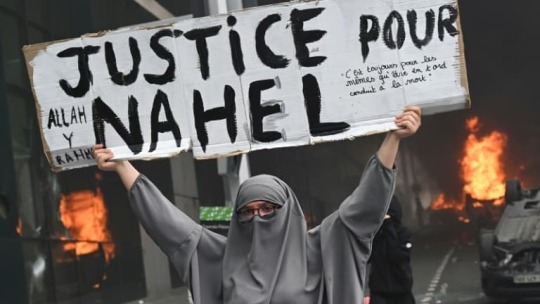
Within the French police force, resorting to violence is not uncommon, nor is racial and religious discrimination. Activists have renewed calls to tackle what they see as such systemic abuse, particularly in neighbourhoods like the one in which Nahel lived, where many residents struggle with poverty alongside racial and other discrimination.
But supporters of the police and their conduct in the context of the 2017 security bill argue that the rise is mostly due to an increase in cases of non-compliance. If one compares the number of non-compliance cases, which have been rising steadily, with the number of shootings, the proportions haven’t changed that much. As one senior police officer said when interviewed, “A failure to comply case occurs every 20 minutes in France,” referencing a statistic that is often hammered home regularly by police unions but also the Interior Minister Gérald Darmanin.
The French Highway Code stipulates that a driver can be stopped by police to have their driving documents checked at any time without any visible violation of the law.
A widespread increase in suspected drug-related road checks has also played a key role, increasing the potential for cases of non-compliance. 453,000 drug screenings were carried out in 2020. This number went up by nearly 30% since 2018, and is set to double in the coming years, according to the French road safety authority.
Also, a lack of insurance can also lead precarious drivers to refuse an inspection. According to the French Guarantee Fund (Fonds de Garantie des Victimes), there were nearly 30,000 victims of road accidents caused by uninsured drivers in 2019.

But in most instances, cases of non-compliance have risen sharply since a points system for French driving licenses was introduced in the 1990s. Drivers start with 12 points and if they commit traffic violations, lose points. Police unions have argued that the system incentivises drivers to flee in order to avoid losing their critical driving licence and their potential jobs that require it.
In 1993, a year after the introduction of the points-based driving licence, the number of refusals to comply was 1,099. Thirty years later, this figure has increased 25-fold. The term 'failure to comply' covers a wide variety of situations. It can be in the context of a standard roadside check, when an offence is detected, or during an urban rodeo with a driver who does anything and everything" to evade police.
While Nahel’s fatal shooting on Tuesday was not the first of its kind this year, 2023 has seen a drop in the number of people killed after not complying with a traffic stop so far, yet it is only June. There were three such killings in 2021 and two in 2020, none in 2019 and 6 in both 2018 and 2017, according to a Reuters tally, which clearly shows the majority of victims since 2017 were of Black and Arab origin.
In other words this whole non-compliance mess is ambiguous enough to create deadly situation in which a 17 year old boy was killed by a trigger-happy police officer.

With one year to go before the Paris Olympics, trigger-happy police, blazing buildings and pillaged shops is hardly the type of PR President Macron had hoped for as he seeks to guild France’s image abroad. the latest crisis is fraught with political danger at a time when his power has already been sapped by a lack of a parliamentary majority that has emboldened his enemies.
While the rioting continues, Macron faces criticism on the Right for having a trembling hand by failing to impose tough measures such as a state of emergency and on the Left for failing to go further in condemning police brutality. His response has been typically Macron in which he has condemned the shooting as inexcusable and the rioting and resulting violence as unjustifiable.
How hard will it be for Macon to traverse the high wire act when the flames from the banlieues could rage higher? We shall see in the coming days and weeks. More worryingly the school vacations will begin in which most of France will go on the their annual ‘grande vacation’ in July or August. What will happen to the youth left behind in the Paris banlieues?
Pauvre France.
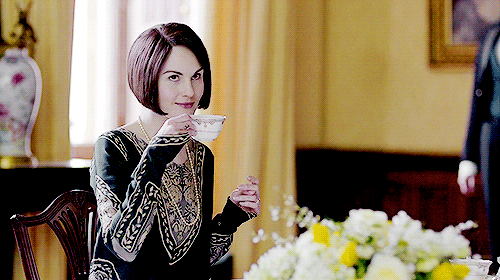
Thanks for your question.
#question#ask#paris#paris riots#nahel#nanterre#paris is burning#macron#leftists#rightists#banlieues#la defense#politics#police#french#france#civil unrest#race#class#society#city
47 notes
·
View notes
Text
Un habitant témoigne en direct sur RMC : « En banlieue, je me fais insulter tous les jours parce que je suis Français.»
4 notes
·
View notes
Text

Grigny, quartier de la Grande-Borne.
#grigny#la grande borne#architecture#trente glorieuses#urbanisme#banlieue#banlieue parisienne#grands ensembles#cité#brutalisme#retro géographie
634 notes
·
View notes
Text





Corviale, Roma
#analog#film photography#35mm film#35mm photography#35mm#urban exploration#urban landscape#banlieue#periferia#corviale#roma#rome
349 notes
·
View notes
Text

Marolles-en-Hurepoix, juillet 2024.
133 notes
·
View notes
Text

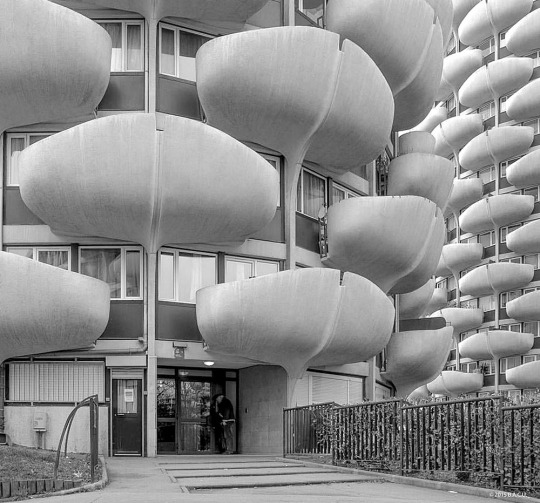
Les Choux de Créteil, dix bâtiments cylindriques avec des balcons en forme de choux, en banlieue parisienne. Achevés en 1974. Conçus par l'architecte Gérard Grandval. (Photo c. 1974). - source The Modernist Collection.
107 notes
·
View notes
Text

Robert Doisneau, Les Vingt Ans de Josette, 1945
#punctum#robert doisneau#les vingt ans de josette#centre pompidou#paris#banlieue#1945#photography#black and white photography
58 notes
·
View notes
Text
you know its the mid aughts when you've got some sick parkour
#relatedly i should rewatch banlieue 13#Casino Royale#Casino Royale 2006#Bond-a-Thon#Bond a Thon#Casino Royale Rewatch
13 notes
·
View notes
Text
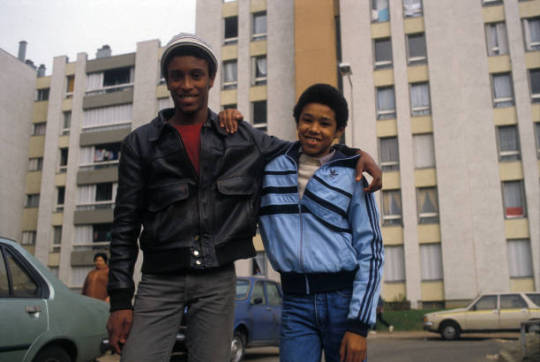
Aulnay sous Bois, France (1984)
59 notes
·
View notes
Text



























59 NORD GRANDE SYNTHE La ville nouvelle ds le rétro des années 80 Au 1er janvier 2024 , Grande-Synthe est catégorisée grand centre urbain, selon la nouvelle grille communale de densité à sept niveaux définie par l'Insee en 2022. Elle appartient à l'unité urbaine de Dunkerque, une agglomération intra-départementale regroupant huit communes, dont elle est une commune de la banlieue.
36 notes
·
View notes
Text



Cyril Raffaelli - District 13 (2004)
#cyril raffaelli#district 13#district 13 movie#banlieue 13#pierre morel#luc besson#french cinema#french action#parkour#action cinema#action choreography#fight scene#fight scenes
17 notes
·
View notes
Text


Marcel Gottlieb (Gotlib) “Banlieues, les ‘Loubards’ vous parlent” Suburbs, the 'Loubards' speak to you L’Express (1973) Source
“At the gates of big cities, thousands of thugs are made”
#Marcel Gottlieb#Gotlib#Banlieues les ‘Loubards’ vous parlent#Suburbs the 'Loubards' speak to you#L’Express
10 notes
·
View notes
Photo

Allones, agglomération du Mans.
6K notes
·
View notes
Text
1/14/25.
The Icypoles were a Melbourne, Australia based band that played minimalistic pop. Others call it twee, but I don't think either the vocals, melodies or instruments are particularly fit this label.
Frankly, I think this sounds what Paris Banlieue might have sounded like had they kept making music and maybe de emphasized their guitars. This has an aesthetic reminiscent of The Shaggs, Jonathan Richman or The Shangri-Las.
This was released by Lost and Lonesome (Australia), Lil' Chief Records (New Zealand...still has 5 copies left) and Highline Records (USA).
#The Icypoles#Melbourne#Australia#Paris Banlieue#The Shaggs#Jonathan Richman#The Shangri-Las#Lost and Lonesome#Lil' Chief Records#Highline Records#Bandcamp
7 notes
·
View notes
Text

Bagnolet, septembre 2024.
20 notes
·
View notes